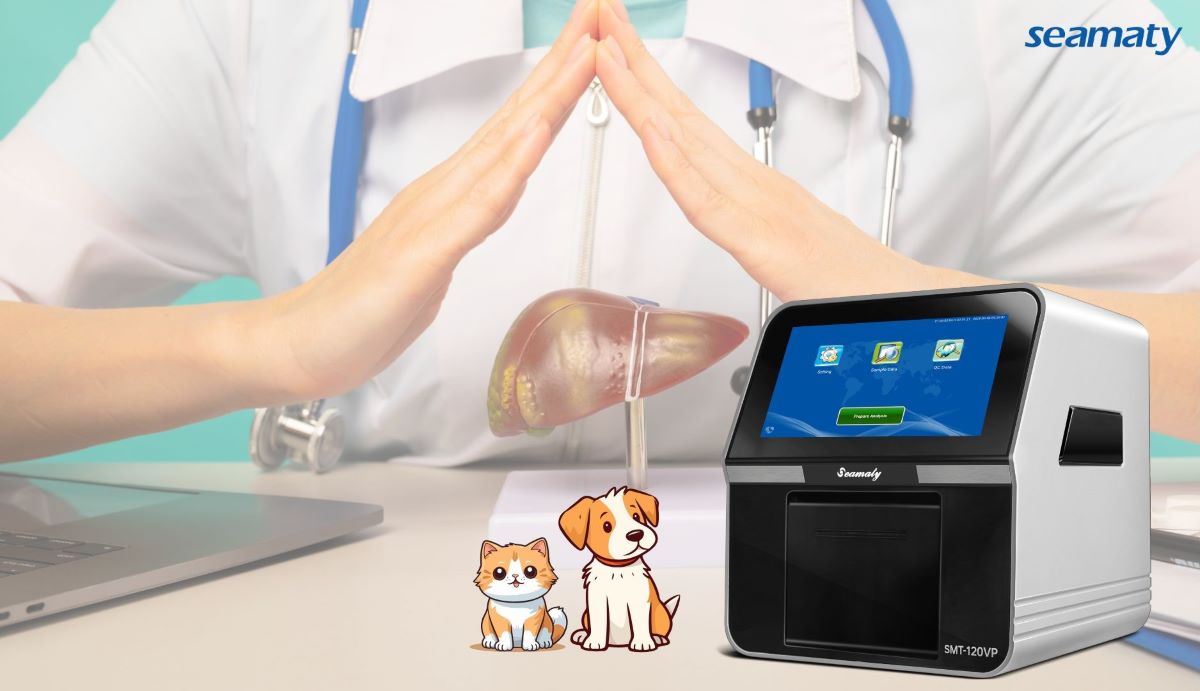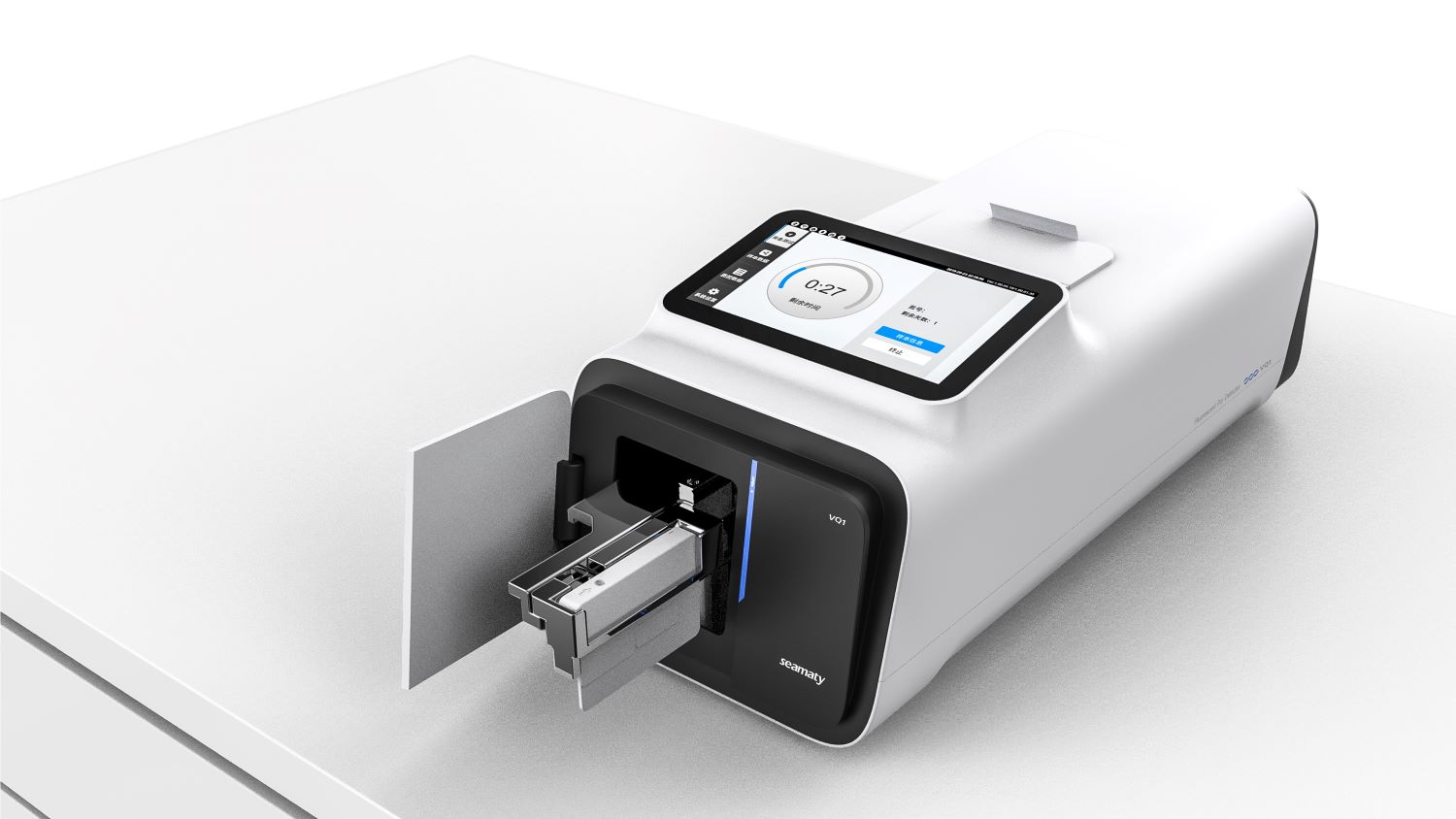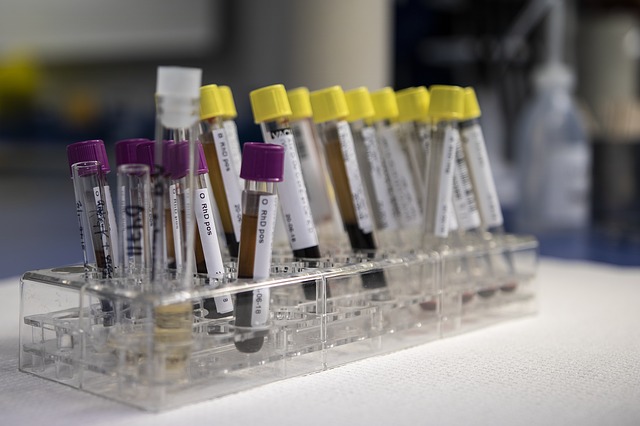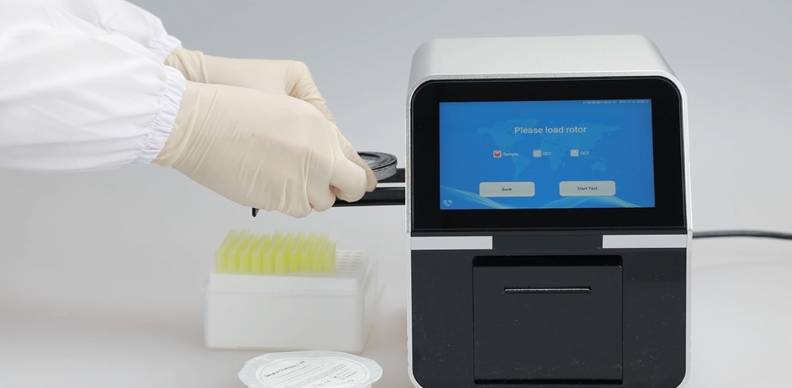release time:2024-12-02 11:31:49

The rapid development of pet healthcare has heightened the demand for advanced diagnostic tools that deliver accurate and timely results. The Seamaty SMT-120VP Veterinary Biochemistry Analyzer stands out as a versatile and intelligent diagnostic instrument designed to support veterinarians in diagnosing and managing complex health conditions in pets, particularly liver damage in dogs and cats.
Liver damage in pets can lead to severe complications if not diagnosed early. This article delves into the features of the Seamaty SMT-120VP and its critical applications in identifying liver damage, offering detailed insights for veterinarians and clinics.
The Seamaty SMT-120VP is a cutting-edge, fully automated veterinary biochemistry analyzer that combines functionality, precision, and convenience. Leveraging advanced microfluidic technology, it reduces the complexity and size of biochemical analysis platforms, making high-quality diagnostic testing accessible for clinics of all sizes.
1.Intuitive Operation:
Designed for ease of use, the SMT-120VP streamlines the diagnostic process. Users simply add the sample, insert the reagent disc, and retrieve the report, minimizing manual intervention.
2.Minimal Sample Volume:
Requires only 100 μL of blood (whole blood, serum, or plasma), ensuring safe sampling for small pets, particularly for those where blood collection can be challenging.
3.High Accuracy:
Built-in Intelligent Real-Time Quality Control (IRQC) continuously monitors the testing process, ensuring reliable and precise results.
4.Rapid Results:
Delivers test results within 12 minutes, enabling veterinarians to make timely clinical decisions and reduce pet owners’ waiting times.
5.Comprehensive Test Coverage:
Supports a wide range of diagnostic tests, including:
The SMT-120VP is engineered to support a veterinarian’s diagnostic needs, enabling a holistic view of a pet's health.
The liver is one of the most vital organs in dogs and cats, functioning as the body’s metabolic powerhouse. It plays an essential role in:
Causes of Liver Damage
Liver damage in pets can result from various factors, including:
Why Early Detection Matters
Early detection of liver damage is critical. Biochemical testing can provide essential insights into liver function, enabling veterinarians to:
The SMT-120VP is a powerful tool for diagnosing liver damage through its diverse testing capabilities, ensuring a comprehensive analysis of the pet’s condition.
Indicators Assessed: Alanine aminotransferase (ALT), aspartate aminotransferase (AST), and alkaline phosphatase (ALP).
Purpose:
Indicators Assessed: Prothrombin time (PT) and activated partial thromboplastin time (APTT).
Purpose:
Indicators Assessed: pH, partial pressure of carbon dioxide (pCO₂), oxygen (pO₂), sodium (Na⁺), and potassium (K⁺) levels.
Purpose:
Indicators Assessed: C-reactive protein (CRP) and serum amyloid A (SAA).
Purpose:
To ensure accurate results and optimal performance, it’s essential to follow these operational guidelines:
Sample Collection
Reagent Disc Preparation
Handling Abnormal Samples
For samples with severe hemolysis, lipemia, jaundice, or viscosity issues:
The Seamaty SMT-120VP Veterinary Biochemistry Analyzer has emerged as an indispensable tool for diagnosing liver damage in dogs and cats. Its multifunctionality, high accuracy, and rapid operation empower veterinarians to provide timely, reliable diagnoses and implement effective treatment strategies.
By offering a wide range of testing options, the SMT-120VP meets the diverse diagnostic needs of modern veterinary clinics, enhancing the standard of care for pets. As pet healthcare technology continues to advance, Seamaty remains committed to driving innovation and improving diagnostic solutions in the veterinary field.

2024-06-25
Discover Seamaty's VQ1 Fully Automated PCR Instrument, a breakthrough in pet diagnostics. Offering rapid, precise, and safe testing, it revolutionizes early detection and treatment of infectious diseases in pets. Ideal for veterinary hospitals and breeding centers, ensuring comprehensive and accurate health solutions for pets.

2022-07-13
What tests correspond to the blood collection tubes of different colors? Is there any difference between venous blood collection and finger blood collection? Why must I be hungry for blood tests?

2021-10-28
Diagnostic Tests In Lab include a series of blood and urine tests. Blood tests may include testing for genes (inherited diseases) or determining the amount of oxygen in the blood. Urine tests may check the blood, chemicals, bacteria and cells for infections or other abnormalities.